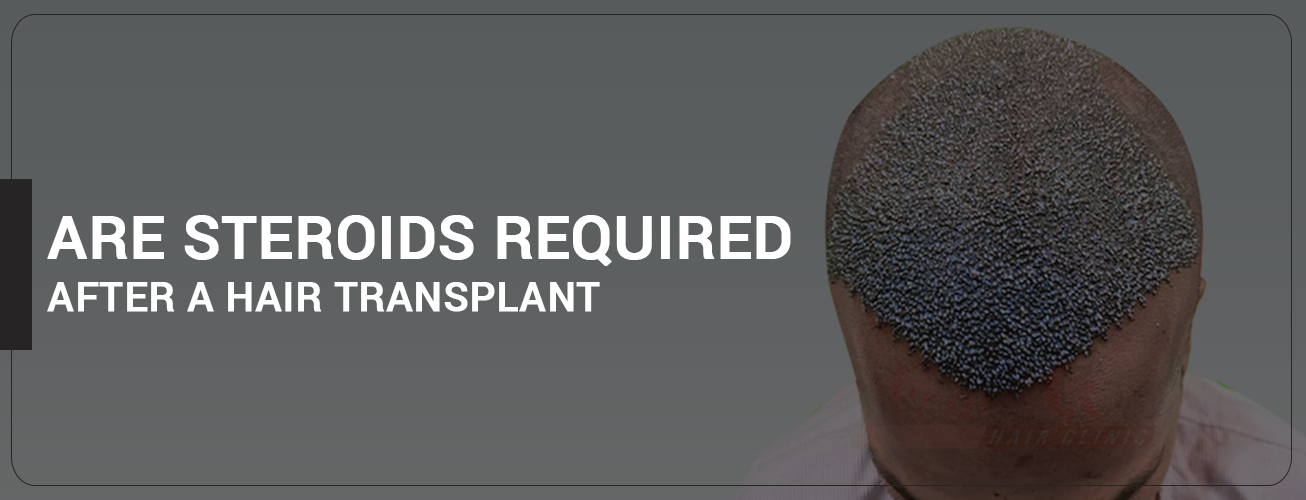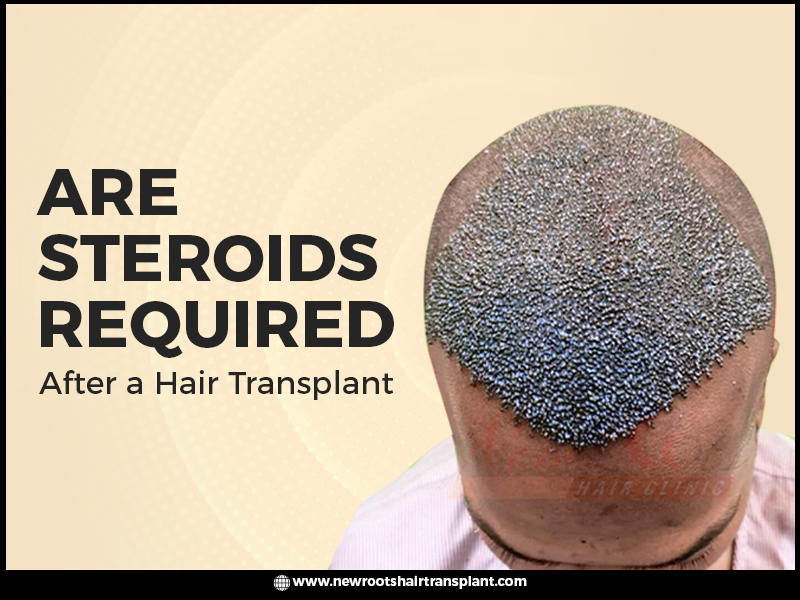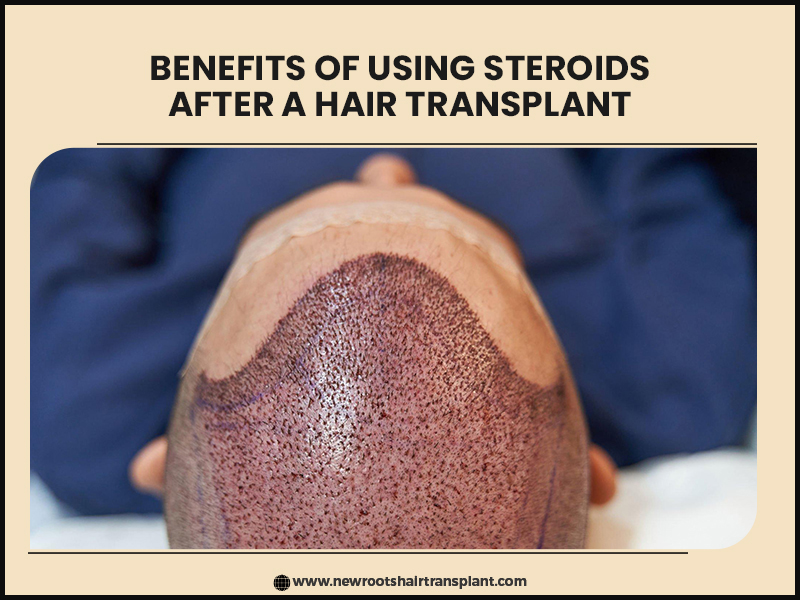
Hair loss can be a frustrating experience for many Indians, and a hair transplant in India can provide a viable solution.
However, the process can be complicated, and patients often have questions about the aftercare required.
One of the most common questions is whether steroids are required after a hair transplant.
In this article, we'll explore this question in detail and provide you with everything you need to know.

No matter how well the hair transplant procedure has been carried out, its success depends largely upon how much care you take postoperatively.
You need to know exactly what you can and cannot do, especially with regard to medicines that need to be taken after the procedure.
Medications usually include prescription drugs, supplements, and pain killers.
Read More : HEAD WASH AFTER HAIR TRANSPLANT: ESSENTIAL TIPS FOR OPTIMAL RESULTS
After a hair transplant, the newly transplanted hair follicles require a stable environment to grow and thrive.
This is where steroids come in. Steroids, in this context, refer to corticosteroids, which are used to reduce inflammation in the scalp.
The scalp is likely to be inflamed after the hair transplant procedure due to the trauma caused by the surgery.
The use of steroids is intended to help the transplanted hair follicles take root and grow in the recipient area without being rejected by the body.
The inflammation caused by the surgery can trigger an immune response, which could lead to the rejection of the transplanted hair follicles.
Steroids help to suppress the immune response and create a favorable environment for hair growth.
Steroids can be administered through different routes, depending on the surgeon's preference.
The most common way is through local injections directly into the scalp.
The injections are usually given on the same day as the hair transplant or a day after the surgery.
Some surgeons may also prescribe oral steroids or topical ointments. The dosage and frequency of steroid administration depend on the individual patient's needs and the extent of the inflammation.
In most cases, a short course of steroids is all that is required to achieve the desired results.

Steroids, such as corticosteroids, may be recommended by some surgeons to promote healing and reduce inflammation after a hair transplant.
Corticosteroids are synthetic drugs that mimic the effects of cortisol, a hormone produced by the adrenal gland.
They are commonly used to treat various inflammatory conditions, including arthritis, asthma, and allergies.
When used after a hair transplant, corticosteroids can help reduce swelling and inflammation at the donor and recipient sites, which can improve healing and prevent complications.
They may also help minimize scarring and improve the overall appearance of the transplant.
While steroids are generally safe, they do come with some risks and side effects that patients should be aware of.
Some of the common side effects include:
The risk of side effects is higher with long-term steroid use, but the short courses used in hair transplant aftercare generally do not pose a significant risk.
Read More : WHEN TO USE MINOXIDIL AFTER A HAIR TRANSPLANT
No, steroids are not required after every hair transplant. It depends on the individual patient's needs and the extent of inflammation. In some cases, the inflammation is minimal, and steroids may not be necessary.
The duration of steroid use varies from patient to patient. In most cases, a short course of steroids, usually 3-7 days, is all that is required.
It is possible to develop an allergic reaction to steroids, although it is rare. If you experience any allergic reactions, such as rash, itching, or difficulty breathing, contact your surgeon immediately.
The use of steroids after a hair transplant may be beneficial for promoting healing and reducing inflammation.
However, there are also potential risks and concerns associated with their use and alternatives may be considered depending on the individual patient's needs and medical history.
It is important to consult with a healthcare professional to determine the appropriate post-operative care for a hair transplant.